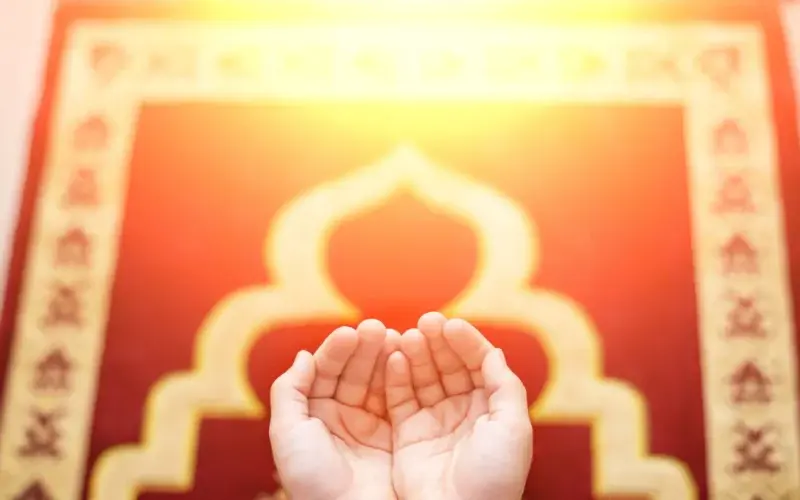“ऐ ईमान वालो नशे की हालत में नमाज़ के करीब न जाओ यहाँ तक की समझने लगो जो कहते हो और न जनाबत की हालत में जब तक ग़ुस्ल न कर लो मगर सफर की हालत में कि वहाँ पानी न मिले तो ग़ुस्ल की जगह तयम्मुम है |
ग़ुस्ल इन 5 वजह से फ़र्ज़ होता है:
1. मनी का शहवत के साथ निकलना (चाहे माज़ अल्लाह हाथ से निकाले)
2. एहतेलाम यानि nightfall हो
3. सोहबत करने से
4. हैज़ (m c) के बाद
5. निफ़ास (बच्चे की पैदाइश के बाद)
इसके अलावा कैसी ही नजासत लगे क़तरा गिरे उसका धोना फ़र्ज़ है ग़ुस्ल फ़र्ज़ नहीं
गुसल के 3 फर्ज
1. कुल्ली इस तरह करना की होंट से हलक़ तक दांतो की सारी जड़ में पानी पहुंच जाये
2. नाक की नर्म हड्डी तक पानी चढ़ाना
3. सर से लेकर पैर तक ऐसा पानी बहाना कि 1 बाल बराबर जगह भी सुखी न रहे,इन तीनो में से कुछ भी छूटा तो हरगिज़ ग़ुस्ल नहीं होगा और जब गुस्ल नहीं हुआ तो वुज़ु नहीं होगा और जब वुज़ु नहीं होगा तो नमाज़ कहां से होगी.
ग़ुस्ल की 9 सुन्नते
1) नियत करना
2) दोनों हाथ गट्टो तक धोना
3) इस्तिन्जा की जगह या कहीं नजासत लगी हो तो पहले उसे धोना
4) वुज़ू करना
5) बदन पे पानी मलना
6) 3 बार दाए कंधों पर 3 बार बाएं कंधों पर फिर सर से पानी डालना
7) किबला रुख न होना
8) ऐसी जगह नहांये की कोई ना देखे
9) नहाते हुए बात या कोई दुआ न पढ़े
ग़ुस्ल करने का तरीका हिंदी में
नीयत करना-
पहले नीयत करना यानि दिल में यह इरादा करना कि निजासत से पाक होने, अल्लाह की रज़ा और सवाब के लिये नहाता हूँ न कि बदन साफ़ करने के लिये।
हाथ धोना-
फिर दोनों हाथों को गट्टों तक तीन-तीन बार धोयें।
इस्तन्जे की जगह धोना-
इस्तन्जे की जगह को धोयें चाहे निजासत लगी हो या नहीं।
बदन पर लगी निजासत धोना-
बदन पर जहाँ भी निजासत हो उसको दूर करें।
वुज़ू करना-
नमाज़ की तरह वुज़ू करें मगर पाँव नहीं धोने चाहियें लेकिन अगर किसी चीज़ पर बैठ कर नहायें तो पाँव भी धो लें।
पूरे बदन पर पानी मलना-
पूरे बदन पर तेल की तरह पानी मलें ख़ास कर सिर्दी के मौसम में।
दाहिने कंधे पर पानी बहाना-
तीन बार दाहिने कंधे पर पानी बहायें।
बायें कंधे पर पानी बहाना-
फिर तीन बार बायें कंधे पर पानी बहायें।
पूरे बदन पर पानी बहाना-
सिर और पूरे बदन पर तीन बार पानी डालें।
पाँव धोना-
अगर वुज़ू में पाँव नहीं धोये थे तो अलग हट कर पाँव धोयें।
पूरे बदन पर हाथ फेरना-
फिर पूरे बदन पर हाथ फेरें और मल लें।
ऊपर दिये गये तरीक़े से ग़ुस्ल करने पर मुकम्मल पाकी हासिल हो जाती है लेकिन अगर ग़ुस्ल में कुछ मुस्तहब अमल भी किये जायें तो इसके सवाब को और बढ़ाया जा सकता है। ग़ुस्ल में कुछ मुस्तहब अमल इस तरह हैः-
ग़ुस्ल के मुस्ताहिबात
- ज़ुबान से नीयत करना।
- नहाते में क़िबले की तरफ़ रुख़ न करना जबकि कपड़े पहने न हों।
- ऐसी जगह नहाना कि किसी की नज़र न पड़े।
- मर्द खुली जगह पर नहाए तो नाफ़ से घुटने तक का जिस्म पर कोई कपड़ा या तहबंद बाँधकर नहाए जबकि औरत का खुली जगह पर नहाना सही नहीं है।
- ग़ुस्ल में किसी तरह की बात न करना और न ही कोई दुआ पढ़ना।
- नहाने के बाद तौलिया या रूमाल से बदन पोंछना।
- सारे बदन पर तरतीब से पानी बहाना।
गुसल के जरूरी मसाइल
मसअला – जिनपर गुस्ल फ़र्ज़ है अगर उन्होने हाथ धोने से पहले किसी बाल्टी या टब में हाथ डाल दिया बल्कि सिर्फ नाखून ही डुबो दिया तो सारा पानी मुशतमिल हो गया अब उससे गुस्ल या वुज़ू कुछ नहीं हो सकता,इस बात का खयाल रखें अगर कोई गुस्ल खाने मे बरहना होकर नहाता है और नहाने से पहले या बाद को कुल्ली करता और नाक में पानी चढ़ा लेता है,उसका गुस्ल हो गया और जिसने गुस्ल कर लिया उसका वुज़ू भी हो गया.
मसअला – युंहि अगर बिला शहवत मनी के कुछ कतरे निकल आये तो वुज़ु टूट जायेगा मगर गुस्ल फ़र्ज़ नहीं.
मसअला – अगर पेशाब के साथ मनी के कुछ कतरात आ जाये तो गुस्ल फ़र्ज़ नहीं.
मसअला – अगर ख्वाब याद है मगर कपड़ों पर कुछ असरात मनी के मौजूद नहीं तो गुस्ल फ़र्ज़ नहीं.
मसअला – और अगर कपड़ों पर मनी या मज़ी के निशान है और ख्वाब याद नहीं तो गुस्ल फ़र्ज़ है.
मसअला – जिनपर गुस्ल फ़र्ज़ है उनको मस्जिद मे जाना,क़ुरान मजीद छूना,ज़बान से क़ुरान की आयत पढ़ना,किसी आयत का लिखना हराम है युंहि क़ुरान की नुक़ूश वाली अगूठी पहन्ना भी.
बहारे शरीयत हिस्सा 2 सफ़ह 30 – 43
In English
O people of faith, do not approach prayer in a state of intoxication, to the extent that you understand what you say. Also, do not go near it in a state of major ritual impurity, unless you have performed the obligatory ghusl (ritual bath). In the case of travel, when water is not available, tayammum (dry ablution) is permissible.
Ghusl becomes obligatory for the following reasons:
- Discharge of semen, whether emitted through sexual intercourse or nocturnal emission.
- Nocturnal emission (wet dream).
- Sexual intercourse.
- Menstruation.
- Postnatal bleeding (after childbirth).
Apart from these, washing away any impurity that falls is obligatory, while ghusl is not obligatory.
The three obligatory acts of ghusl are:
- Making water reach the roots of the hair on the head, ensuring that it reaches the base of the hair on the lips.
- Pouring water into the nostrils up to the nasal bone.
- Letting water flow over the entire body from head to toe, making sure that no strand of hair remains dry. If any part is missed, the ghusl is incomplete, and without proper ghusl, wudu (ablution) is not valid, and without valid wudu, prayer is not accepted.
Sunnah acts of ghusl (recommended):
- Make the intention (niyyah) in your heart.
- Wash both hands up to the wrists three times.
- Wash the place of istinjā (cleaning after using the toilet), whether it is impure or not.
- Perform wudu.
- Pour water over the entire body like oil, especially during cold weather.
- Pour water three times over the right shoulder, then three times over the left shoulder, and then pour water on the head.
- Ensure that the direction of the Qibla is maintained.
- Choose a place to bathe where no one can see.
- Do not engage in conversation or recite any supplications while bathing.
The method of performing ghusl in Hindi:
- Make the intention.
- Wash both hands up to the wrists.
- Wash the place of istinjā.
- Clean any impurity from the body.
- Perform wudu.
- Pour water over the entire body like oil, especially during cold weather.
- Pour water three times over the right shoulder, three times over the left shoulder, and then on the head.
- Ensure that the Qibla direction is maintained.
- Choose a bathing place where no one can see.
- Do not engage in conversation or recite any supplications while bathing.
In addition to the above steps, performing some recommended acts during ghusl can enhance the reward. Some recommended acts during ghusl include:
- Make the intention with the tongue.
- Do not turn towards the Qibla during bathing, especially if clothes are worn.
- Men should tie a piece of cloth or wear a waistband from the navel to the knees if bathing openly, while women should not bathe openly.
- Refrain from talking during ghusl, and do not recite any supplications.
- Dry the body with a towel or cloth after bathing.
- Wash the entire body in sequence.
- Wash the feet if they were not washed during wudu.
- Wipe the body with hands after pouring water.
- If missed during wudu, wash the feet separately.
- If the entire body is not washed during ghusl, perform wudu again.
Ghusl-related essential issues:
- Issue – If someone performs ghusl by immersing their hands in a bucket or tub before washing them, and only the nails get wet, the ghusl will not be valid. Therefore, be careful that when washing hands, both hands should be immersed in water.
- Issue – If some drops of semen come out without sexual desire, the wudu will break but ghusl will not be obligatory.
- Issue – If some drops of urine come out with semen, ghusl will not be obligatory.
- Issue – If one remembers a wet dream but finds no traces on the clothes, ghusl is not obligatory.
- Issue – If traces of semen or mazi (pre-seminal fluid) are found on clothes, and one does not remember a dream, ghusl is obligatory.
- Issue – If one is obliged to perform ghusl and enters a mosque, touches the Quran, reads the verses with the tongue, or wears a ring with Quranic inscriptions, all these actions are prohibited.
- Issue – If someone performs ghusl after eating and does not wash the hands first but dips only the fingernails in water, the entire water becomes impure. Now, ghusl or wudu is not possible with that water. So, be mindful of this point. If one performs ghusl by dipping hands with long nails into a bucket or tub before washing them, and only the nails get wet, the entire water becomes impure. Now, ghusl or wudu is not possible with that water. Therefore, be careful that when washing hands, both hands should be immersed in water.
(Source: Bahare Shariat, Part 2, pages 30–43)"




